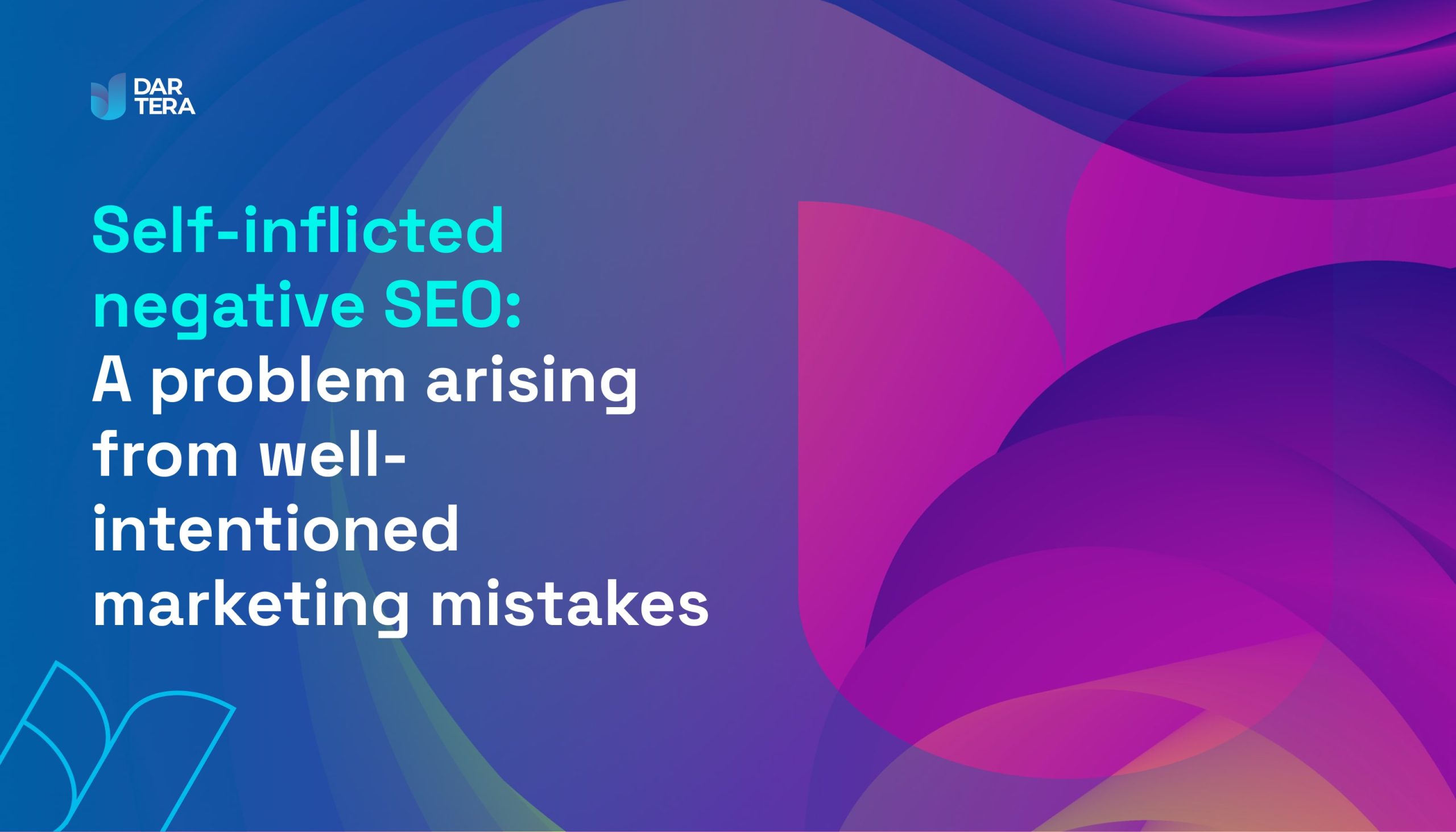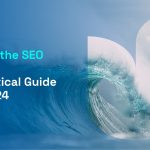Self-Inflicted Negative SEO: A Problem Arising from Well-Intentioned Marketing Mistakes

While there are many potential pitfalls when it comes to SEO, some of the most common are actually the result of well-intentioned marketing efforts. Organic search, as the name implies, relies largely on a more natural and gradual approach to discovery, as opposed to more aggressive options like pop-ups and direct targeting. Therefore, even experienced marketers can sabotage their own SEO campaign if they are not as familiar and experienced with SEO as they are with other aspects of marketing.
Effective SEO efforts usually rely on a slow and steady strategy of building resources such as content and links over time. As with a physical structure, small inadequacies become more detrimental and problematic as the build continues without noticing or addressing these issues. The longer you wait to ensure you are using effective construction methods, the harder it will be to undo the damage done, which can grow exponentially over time.
For example, if you create a lot of content that is too similar, over time you can cannibalize your own content and make your site look spammy and less credible overall. Then, when you decide to fix the problem, it can take a lot of time to review your blog posts, identify the duplicate content, and adjust or replace those pages. Moreover, you may simply have to delete some pages, which means that the time you spent creating them was at best wasted and at worst directly harmful.

Common mistakes made on and off page
Many common SEO mistakes are made by well-meaning marketers. Many of these mistakes have to do with long-standing misconceptions about SEO strategies, as well as false equations between traditional marketing strategies and SEO. These common mistakes include:
- Keyword stuffing: Before Google introduced more sophisticated algorithms, keyword stuffing was an effective option. Nowadays, keyword stuffing only serves to make your content look awkward and overly commercial.
- Content that is too promotional: When a visitor reads blog content they found through a search, they probably want a question answered and may feel put off or frustrated if the answer to that question is hidden in a mountain of advertising.
- Non-descriptive anchor text: Your anchor text should really be relevant to the link you are using. Common mistakes are vague anchor texts like "click here" or misleading anchor texts like "running shoe maintenance" where the link points to a running shoe product page that has nothing to do with maintenance.
- No-Following Links: Many well-meaning webmasters reject links because they fear that do-follow links could lead to a catastrophic loss of link juice. However, external links provide very valuable signals for building the authority and credibility of your website. This value outweighs any loss of Link Juice. Furthermore, Google crawls these links independently of no-follow tags, and no-following does not change the need to ensure that these links are relevant to the associated anchor text. If you don't think a link is credible or relevant, or if it otherwise has quality issues, it's best to just not include it....
- Banned pop-up ads: having to click out of or read around multiple pop-up ads can cause your audience to look for a less distracting page to get information. Pop-up ads can be very valuable, but their value can be diminished if they are used too often.
- Questionable Site Relationships: Backlinks are of enormous benefit to an SEO campaign. However, not all backlinks offer the same quality. Spammy links from low-quality websites probably do more harm than good in the long run.
- Superficial content: Your content should provide real value to your audience. It's better to have some helpful, well thought out content than an avalanche of catchy titles with no content.

What you should know about your audience
Organic marketing relies heavily on audience buy-in and engagement. It follows that many SEO mistakes have to do with putting the product in front of the audience, which goes against the grain. As mentioned earlier, there are also more direct marketing strategies. Organic search marketing and other organic marketing strategies aim to take a different approach to advertising.
Ignoring the fact that these alternative strategies aim to create a broader marketing network, marketers can seriously dilute the value of their SEO efforts by essentially duplicating other efforts less effectively. To avoid this stumbling block, marketers should always remember that the audience is king. Still, there are a few things marketers should remember when developing an SEO strategy in relation to their audience:
- They are probably not interested in your specific product. If a user visiting your site has not searched for your brand or product by name, they are likely only interested in the information related to their specific search query. Even if users are ready to discover your brand, product or service, they are likely to feel blindsided when they expect an answer to their question and are confronted with a wall of ads. An important goal of search engine optimization is to associate your brand with honest, helpful information. Nurturing this association can help your brand stand out from the competition.
- They don't want to be inconvenienced. If someone is visiting your blog to get answers, they probably won't appreciate having to fight through pop-up ads and other promotional material.
- You don't have to trick them. With blog content, part of your goal is to sincerely demonstrate your expertise and desire to help your audience, with the intention of building a positive brand association. If you know your industry and know your audience, this should be relatively easy for you.
- People judge by external value. Although we'd like to think that people judge a message by its content rather than its presentation, that's often not the case. If your blog posts are disorganized and poorly edited, it can diminish your audience's perception of your professionalism and sense of quality.

Understand your limitations
One of the best protections against SEO self-sabotage is a healthy awareness of your limitations and the limitations of your business. These limitations can be directly related to a lack of SEO knowledge, but also related skills and experience, such as writing optimized content, web development, or link building. Knowing your limitations will help you better navigate and decide whether you should improve your own skills, hire an in-house specialist, or outsource all or part of your SEO efforts.

Should you try SEO without experience?
Even though overestimating yourself when starting SEO efforts can be quite problematic, it doesn't mean that you can't take some small steps yourself with good effect. As long as you focus on what is truly helpful to your audience, rather than putting your product or service in front of them, you are likely to be able to build your SEO assets. Some simple and very useful first steps you can take are:
- Listing your business on Google My Business (if you have a physical location you want customers to visit);
- Making sure your location (if you have one for your business) and contact information is up to date on your website and other online directories;
- Conducting usability tests for your website;
- Write some definition pages about the terminology of your field, e.g., "What is compost?" (if your product or service is related to gardening);
- Write some how-to pages that are relevant to, but not specific to, your products and services, e.g., "How to tend your garden during a heat wave" versus "How to use the Gardenator 420 during a heat wave."
- Maintain a realistic, regular schedule for publishing your content.
In short, start simple and answer questions your audience needs to know, such as where you are, how they use your products, and why they should trust you.








